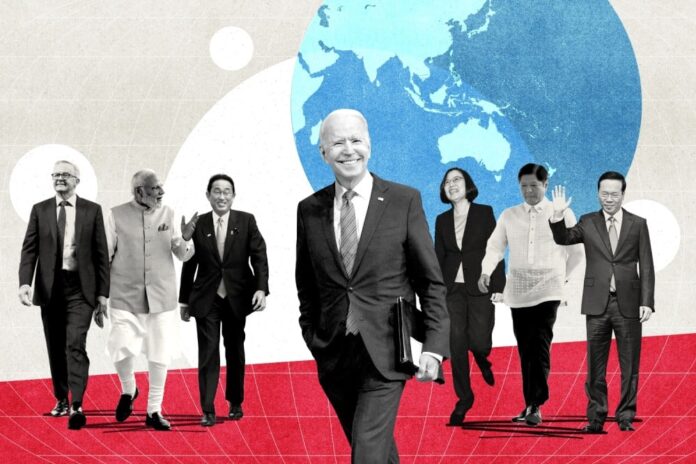Author: Van Jackson
Affiliation: Victoria University of Wellington (New Zealand), Center for a New American Security
Organization/Publisher: Foreign Affairs
Date/Place: March 12, 2021/USA
Type of Literature: Article
Word Count: 2239
Link:https://www.foreignaffairs.com/articles/asia/2021-03-12/americas-indo-pacific-folly
Keywords: China, America, Indo-Pacific
Brief:
In this article, the author talks about the importance that the new US President Joe Biden attaches to the preservation of the free and open Indo-Pacific region. Biden has contacted all of the presidents of China, India and South Korea to confirm the importance of the American alliance with them and the peace and prosperity it provides to the Pacific and the Pacific region. It is also for this purpose that the position of “Coordinator of the Indo-Pacific Region” was recently created in the National Security Council; Kurt Campbell, one of the architects of President Barack Obama’s “axis” in Asia, has been appointed by Biden to this position. In the writer’s opinion, the goal of the “Indo-Pacific Free and Open” region may seem noble, but pursuing it would lead the United States astray. Specifically, the United States risks expanding its power in the Indian Ocean region as it has no alliances, responsibilities, or interests there. Many now see it as a vital area for confronting China. The writer also talks about India’s importance to the Pacific, a partnership that Japanese strategists have quietly promoted in order to weaken China’s power in East Asia. Reframing Asia as the “Indo-Pacific” has served countries such as Australia, India, and Japan. The Indo-Pacific became an obsession for Washington only after the publication of Robert Kaplan’s book on geopolitical voyages in 2010, which popularized the idea that the Indian Ocean would take center stage in the 21st century. The writer believes that neglected Asian peace is not the only danger that Washington faces through its expanded perception of Asia. The Indian Ocean has geographical importance to US allies such as Japan and Australia. But the geography of the ally is not the geography of the United States. Washington should not allow arrogance, fear, or collective thinking to distort its perception of threats, interests, and capabilities.
By: Taqwa Abu Kmeil, CIGA Research Assistant




